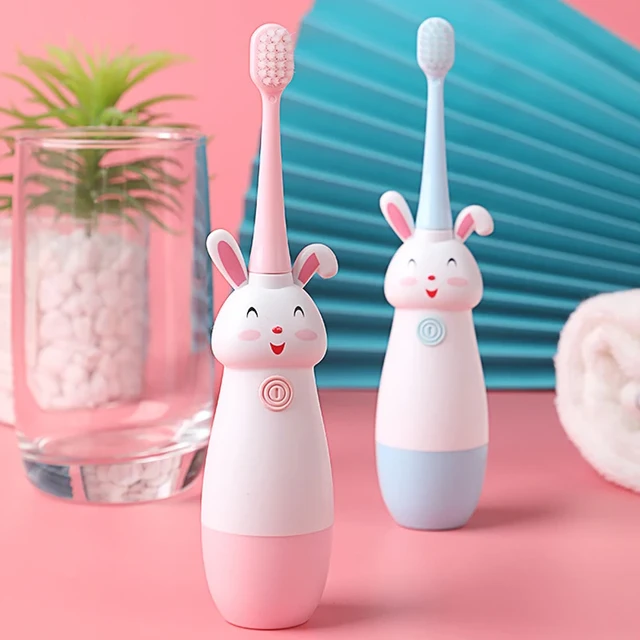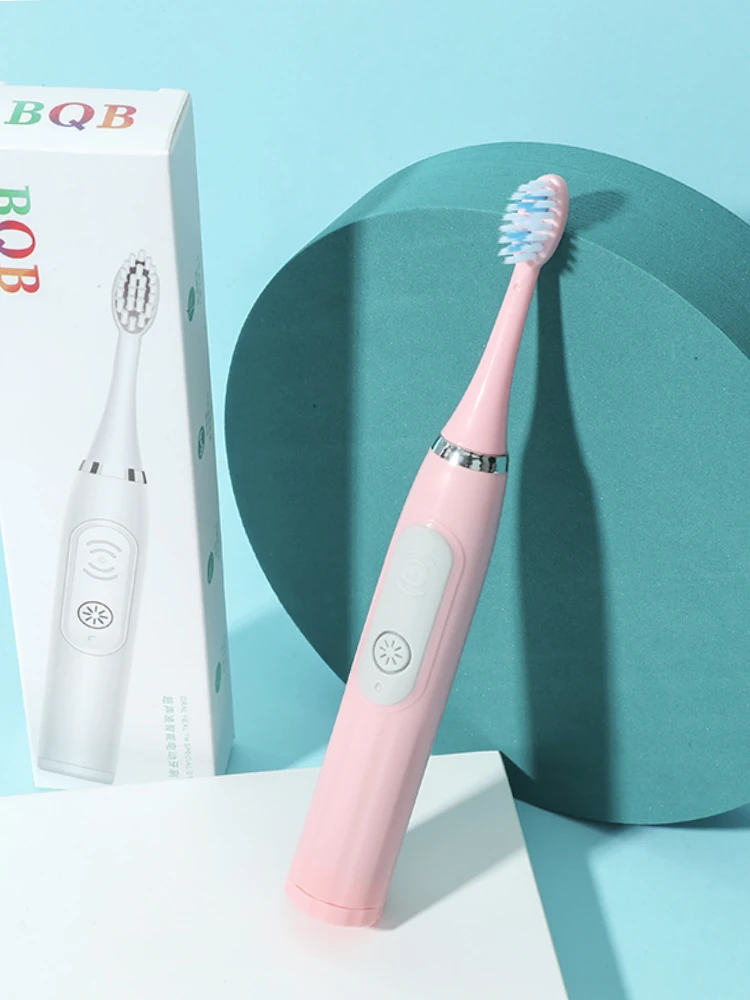Introduction:
When it comes to using an electric toothbrush, many people wonder if they should brush with a lot of force or apply excessive pressure. However, it is important to understand that brushing hard with an electric toothbrush is not recommended. In this guide, we will explore the reasons why gentle brushing is preferred, the potential risks of brushing too hard, and tips for achieving an effective clean without causing harm to your teeth and gums. By following these guidelines, you can ensure optimal oral hygiene without the risk of damaging your oral tissues.

Are you supposed to brush hard with an electric toothbrush?
The Importance of Gentle Brushing:
Gentle brushing is essential for maintaining optimal oral health. Here’s why:
a. Protects the Gums: Brushing too hard with an electric toothbrush can cause damage to the delicate gum tissue, leading to gum recession, sensitivity, and even gum disease. Gentle brushing helps protect the gums and maintain their health.
b. Prevents Enamel Erosion: Applying excessive pressure when brushing can erode the protective enamel layer of your teeth. This can result in tooth sensitivity, enamel thinning, and an increased risk of cavities. Gentle brushing helps preserve the integrity of the enamel.
c. Promotes Effective Plaque Removal: Gentle brushing, combined with proper technique and sufficient brushing time, is sufficient for effective plaque removal. The oscillating, rotating, and pulsating motions of an electric toothbrush, along with the bristles, are designed to do the work for you. Applying excessive force is unnecessary and can lead to negative consequences.
Potential Risks of Brushing Too Hard:
Brushing too hard with an electric toothbrush can have several negative effects on your oral health. Some potential risks include:
a. Gum Irritation: Applying excessive pressure can cause the bristles to irritate and damage the gums. This can lead to gum inflammation, soreness, bleeding, and gingivitis.
b. Enamel Damage: The enamel, the protective outer layer of your teeth, can be worn down by aggressive brushing. This can result in tooth sensitivity, an increased risk of cavities, and a dull appearance of the teeth.
c. Receding Gums: Brushing too hard can cause the gum tissue to recede or pull away from the teeth, exposing the sensitive tooth roots. This can lead to tooth sensitivity and an increased risk of gum disease.
d. Toothbrush Abrasion: Vigorous brushing with excessive force can cause toothbrush abrasion, which is the wearing away of tooth structure at the gumline. This can result in notches or grooves in the teeth, making them more susceptible to decay and sensitivity.
Tips for Gentle and Effective Brushing:
To achieve an effective clean without causing harm, consider the following tips for gentle and effective brushing with an electric toothbrush:
a. Use Light Pressure: Apply only light pressure when brushing with an electric toothbrush. Let the brush head’s motion and the bristles do the work for you. The oscillating, rotating, and pulsating motions of the electric toothbrush are designed to provide effective plaque removal without the need for excessive force. You can use a hello kitty mirror to see how hard you brush your teeth.
b. Hold the Toothbrush Correctly: Hold the electric toothbrush handle with a relaxed and comfortable grip. Avoid gripping it too tightly, as this can lead to applying more pressure than necessary.
c. Focus on Technique: Focus on using the correct brushing technique rather than relying on force. Position the brush head at a 45-degree angle towards the gumline and use a gentle circular motion to clean the tooth surfaces and along the gumline. Let the bristles glide over the teeth and gums without excessive pressure.
d. Time Your Brushing: Brush for the recommended two minutes, dividing your mouth into four quadrants and spending 30 seconds on each quadrant. This ensures adequate cleaning time without the temptation to rush or apply excessive pressure.
e. Replace Brush Heads Regularly: Replace the brush head of your electric toothbrush according to the manufacturer’s recommendations. Worn-out bristles are less effective at cleaning and may require more pressure to achieve a clean feel. By using a fresh brush head, you can maintain optimal cleaning performance with gentle brushing.
Additional Oral Care Practices:
While gentle brushing is crucial, it is also important to incorporate additional oral care practices into your routine. These practices can enhance your oral hygiene:
a. Flossing: Flossing is an essential practice for removing plaque and debris from between your teeth and along the gumline. Incorporate daily flossing into your oral care routine to ensure thorough cleaning in areas that the toothbrush may not reach effectively.
b. Mouthwash: Using an antimicrobial mouthwash can provide additional protection against bacteria and freshen your breath. Rinse your mouth with mouthwash after brushing and flossing.
c. Regular Dental Check-ups: Schedule regular dental check-ups and professional cleanings. Your dentist can evaluate the health of your teeth and gums, provide personalized oral care recommendations, and address any concerns you may have.
d. Dietary Considerations: Maintain a balanced diet and limit the consumption of sugary foods and beverages. This helps reduce the risk of tooth decay and promotes overall oral health.
Conclusion:
Brushing with an electric toothbrush should always be gentle rather than forceful. Applying excessive pressure can lead to gum irritation, enamel damage, receding gums, and toothbrush abrasion. Gentle brushing, combined with proper technique, is sufficient for effective plaque removal and maintaining oral hygiene. Use light pressure, hold the toothbrush correctly, focus on technique, time your brushing, and let the electric toothbrush do the work. Replace brush heads regularly to maintain optimal cleaning performance. Additionally, incorporate flossing, mouthwash, regular dental check-ups, and a balanced diet into your oral care routine. By following these tips and practices, you can achieve an effective clean without the risk of harming your teeth and gums, ensuring optimal oral health.

